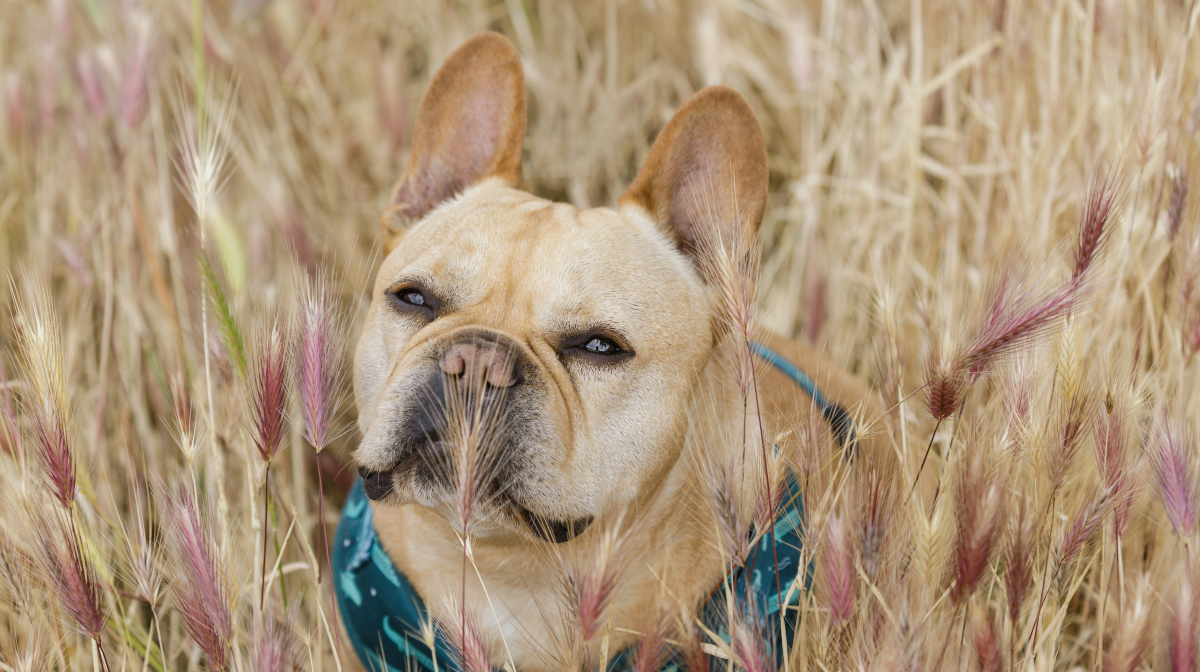
If you’re wondering if dogs can eat barley, the short answer is yes. Barley is already an existing ingredient in regular dog food, approved to be safe for dogs. It's rich in nutrition that can be beneficial to your dog’s health. However, it’s important to know that there are different types of barley, as well as different ways to prepare it. In this article, we discuss how dogs can eat barley and if barley is good for dogs.
Is barley good for dogs?
Barley is good for dogs, which is why it’s often used as a source of carbohydrate in most dog food. It’s also known to have one of the lowest glycemic indexes compared to other cereal grains, meaning it can lower cholesterol and regulate blood sugar levels This makes it ideal for dogs diagnosed with diabetes and obesity. Not only does it provide protein that supports muscle health, but it’s also high in fibre that is great for digestion, supporting healthy bowel movements and avoiding constipation. It contains other nutrients such as vitamin B and minerals like magnesium, phosphorus, potassium and selenium.
While barley is good for dogs, it needs to be given in moderation. Dogs can’t have too much barley as the high fibre content can act as a natural laxative and lead to digestive issues such as diarrhoea. Since it’s also high in carbohydrates, if dogs have barley in excess it can lead to weight gain. Instead, dogs can eat celery occasionally to support their digestion.
For dogs to eat barley, it needs to be thoroughly and plainly cooked. If you’re thinking of introducing barley for your dog’s diet, make sure it’s only as an occasional treat. It’s more important that your dog’s primary source of nutrition is provided in a complete and well-balanced diet tailored to meet the nutritional requirement for their lifestage and lifestyle.
Is barley better for dogs than rice? (PAA)
Both barley and rice can be found in many dog food recipes and offer plenty of nutrition to dogs. The option of which is better depends on your dog’s dietary needs. Barley is good for dogs as it has a higher fibre and protein content which is great for digestion, muscle health and weight management.
Similarly, rice is also highly digestible, which is why it can be good for dogs with sensitivities and digestive issues. For instance, if your dog has an intolerance to gluten, rice would be a better option since barley contains gluten. There are some signs of gluten intolerance, such as skin irritation and digestive upset, but your veterinarian can help you diagnose this food-related sensitivity. Learn more about digestion in dogs and how to support them.
How much barley can I give my dog? (PAA)
How much barley your dog can eat depends on their size and overall diet. For smaller dogs, 1-2 tablespoons of cooked barley can be safe to eat, while larger dogs can have more barley - up to ¼ cup. However, barley should be less than 10% of your dog’s weekly caloric intake. It’s important to note that your dog needs proper nutrition from complete and balanced dog food, and barley should not be their primary source of food.
Can dogs eat pearl barley?
Yes, dogs can have pearl barley. Pearl barley has been processed to remove the outer hull, although this lowers the amount of fibre compared to barley. However, for this reason, it’s easier to cook and more digestible, which means dogs can eat pearl barley, especially if they have sensitive stomachs. In this sense, pearl barley is more similar to rice.
However, your dog should only eat pearl barley in moderation, just like barley. As an occasional treat, pearly barley has its benefits, but it should never replace complete dog food. You should also consult a veterinarian before introducing any new foods to your dog’s diet.
Can dogs eat cooked barley? (PAA)
Dogs should only eat cooked barley that is plainly and properly prepared for it to be safe. There are many nutritional benefits of cooked barley for dogs, including its fibre, protein, mineral and vitamin content. While dogs can have pearl barley, never let your dog eat raw barley, as it can be difficult for them to digest. If you’re worried about your dog’s digestion, you can learn more about how often dogs should poop to see if there are any issues.
What grains should dogs avoid? (PAA)
There are some grains that dogs should avoid altogether. If your dog has a food allergy or grain sensitivity, they may struggle with corn, wheat and soy. These grains can cause allergic reactions, digestive issues or skin problems in sensitive dogs. When offering your dog a new food, observe their reaction closely to monitor for any symptoms. You can also consult a veterinarian to learn more about what your dog can/can’t eat. Ultimately, barley for dogs is a safe option.









